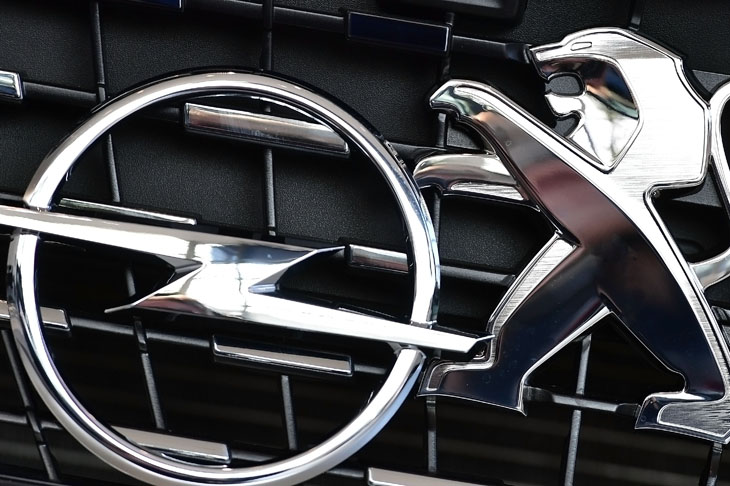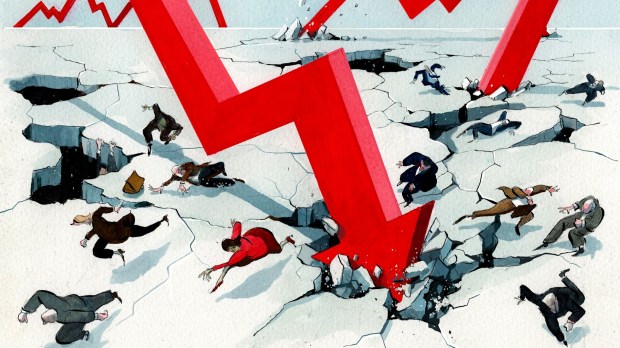Budget week also turned out to be a week of notable deals. PSA, French owner of Peugeot and Citroën, went ahead with its €2.2 billion takeover of Vauxhall and Opel from General Motors, creating ‘a new European giant to challenge Volkswagen’, according to the spin, and new fears for those who foresee post-Brexit attrition of the British motor industry. By way of reassurance, PSA boss Carlos Tavares said a hard Brexit is an ‘opportunity’ — to beef up the domestic supply chain while reducing component imports from the EU — and that ‘I trust Vauxhall workers’ to improve their productivity. That last bit sounded to me more like a threat to their jobs.
Then came the agreed merger of Aberdeen Asset Management and Edinburgh-based Standard Life to create what really will be a European giant of the investment sector, with £660 billion under management. Chaired by wily Whitehall veteran Sir Gerry Grimstone, Standard Life has moved a long way from its 19th-century origins but steered a steady course since its 2006 demutual-isation. Emerging markets specialist Aberdeen, by contrast, is the mercurial creation of entrepreneur Martin Gilbert, and has had more downs than ups in recent years. Together, even after cost-saving job cuts, they will form the pre-eminent financial institution north of the border — but don’t expect them to move into the space left by Scottish banks that formerly competed for that title. One of Standard Life’s few strategic mishaps was to start a bank of its own in 1998; the unhappy venture was sold a decade later to Barclays, which demolished it.
Taxing the gig economy
As for the Budget, what caught my eye was the Chancellor’s move to claw bigger National Insurance contributions from the growing multitude of self-employed, as a step towards catching the so-called ‘gig economy’ in the tax net. There’s a big issue here: there are now five million of us self-employed (and almost a million using ‘single–person companies’) all paying less tax and NI than we might have done if we were employed to do much the same work in the old-fashioned way. Meanwhile, there’s huge growth in Airbnb lettings, parking-space rentals and other ways of monetising personal assets and skills — largely outside the purview of HMRC.
You might argue that the self-employed enjoy less security than the employed, so it’s fair they contribute less; you might argue that the ‘sharing economy’ is a nifty pocket-money source for hard-pressed families, and that tax grabs will swiftly kill it. But revenue-starved Chancellor Hammond will retort that all income and commerce, however novel in form, must be taxed unless specifically exempted, otherwise government can’t make ends meet: tax should keep pace with changing patterns of life and technology. Thus Microsoft founder Bill Gates recently proposed that if robots are replacing humans in business, then companies operating robots should pay income tax on their behalf. Back in 1991, Chancellor Norman Lamont had an even better idea, though at the time it was scorned: a tax on mobile phones. Think what a massive revenue earner that would have been by now.
Set to self-destruct?
Overvalued dotcom stocks hardly make headlines these days. But the New York debut of Snap Inc — parent of Snapchat, the social media site designed to make embarrassing selfies self-destruct — really wins a coconut. Launched at $17, the shares traded up to $29, giving a valuation of $30 billion which, as one US commentator observed, made Facebook, Amazon and Google’s parent Alphabet look like ‘bargain-basement value stocks’. Snapchat has no obvious prospect of breaking into profit, but in dotcom la-la land, analysts look instead at the ratio of market value to sales: for Snapchat that ratio turns out to be six times higher than Facebook’s. Another measure is market value per user, of which Snapchat claims 158 million; on that basis, the valuation is also six times what Facebook paid for the rival Instagram site in 2012.
Doubters say Snapchat could rapidly be overtaken by the next social media fad and that its potential growth in user numbers is limited by demographics: there just aren’t enough ‘millennials’ out there with nothing better to do. Even if it endures, it may go the way of Twitter — which has priceless daily publicity from the White House but mounting losses and a share price stuck far below its 2013 flotation level. What’s more, Snap Inc’s public shares carry no voting rights, so investors have no say in its future. In fact the whole thing looks mad. But what do I know of the youth of today — two of whom, Snapchat founders Evan Spiegel, 26, and Bobby Murphy, 28, are now worth $4 billion each?
Picture that
Another eye-catcher, not least for the gratuitous picture opportunities it offered, was the sale of Agent Provocateur to a group led by Sports Direct tycoon Mike Ashley. But the terms of this one are ‘preposterous’, or so said the lingerie brand’s founder, Joe Corré. Well, yes — if for a horrible moment you imagine portly Ashley wearing the Provocateur product, in the way that he likes to be seen wearing the Newcastle United strip he also sells.
Ashley’s name is enough to taint any deal these days, whatever he’s wearing, but in fact the villain of this one appears to be the seller, 3i, rather than the buyer, Four Marketing, of which Ashley holds 25 per cent. 3i is a private equity firm, formerly owned by the high-street banks, that has latterly acquired what I have called ‘a shark-like reputation’. In this case it deployed a device called a ‘pre-pack administration’, an insolvency scheme that allows a failing business’s assets to be sold while leaving unpaid its debts to suppliers, banks and the taxman. ‘A phenomenal swath of litigation’ is bound to follow, growls Corré. But Ashley and his pals are just snapping up 3i’s bargain lingerie offer.
Got something to add? Join the discussion and comment below.
Get 10 issues for just $10
Subscribe to The Spectator Australia today for the next 10 magazine issues, plus full online access, for just $10.
You might disagree with half of it, but you’ll enjoy reading all of it. Try your first month for free, then just $2 a week for the remainder of your first year.















Comments
Don't miss out
Join the conversation with other Spectator Australia readers. Subscribe to leave a comment.
SUBSCRIBEAlready a subscriber? Log in